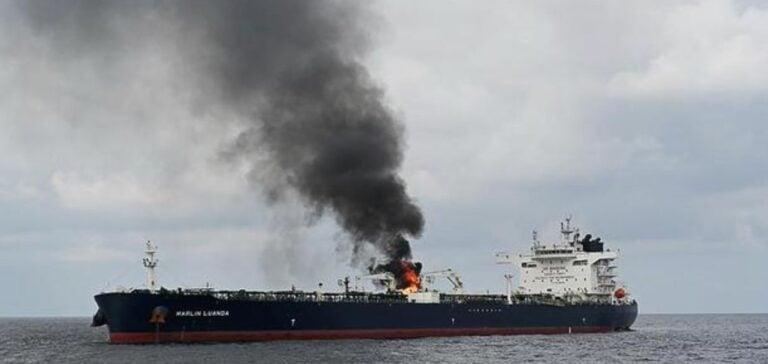The oil tanker “Gulfstream”, which capsized six months ago near the Cove eco-industrial park, has been refloated by the Trinidad and Tobago authorities.
The shipwreck caused an oil spill, with 50,000 barrels of fuel oil spilling over an area 15 km off the coast.
The operation, led by the Ministry of Energy, secured the vessel at a depth of 60 meters, assisted by tugs.
Initially loaded with 85,000 barrels of fuel oil, the “Gulfstream” sank while being towed by the barge “Solo Creed”, whose beacon was deactivated shortly after the incident, making the salvage process complex.
The authorities acted swiftly to prevent further contamination, although the environmental impact was already considerable.
International survey: owner search
The Trinidad and Tobago authorities are continuing their investigations to identify the owners of the “Gulfstream”, a vessel without a clearly identified flag.
The Minister of Energy, Stuart Young, has requested the assistance of several countries, including Tanzania, Nigeria, Panama, Aruba and Curacao, to help track down those responsible for the vessel and tug.
The absence of distress signals and the deactivation of the vessel’s tracking systems further complicate the investigation.
The cost of cleaning up the oil spill is estimated at $30 million, an amount that could be passed on to the owners once identified.
The ongoing investigation highlights the challenges of dealing with incidents involving unidentified vessels, accentuating the need for enhanced international cooperation.
Impact on maritime regulations
The “Gulfstream” incident could act as a catalyst for revisions to maritime safety standards, particularly with regard to the towing of oil-carrying vessels.
The opacity surrounding the identity of the vessel and the actions of its crew raises serious questions about the effectiveness of current protocols.
International discussions could be initiated to improve monitoring and rapid response systems, thereby minimizing future risks.
Efforts are now focused on the safe transfer of the “Gulfstream” to Port of Spain for a more detailed inspection.
At the same time, the authorities are working on the rehabilitation of the affected areas, a complex task requiring advanced technical expertise.
The incident serves as a reminder of the dangers inherent in the maritime transport of oil, and underlines the importance of rigorous application of safety standards.






















